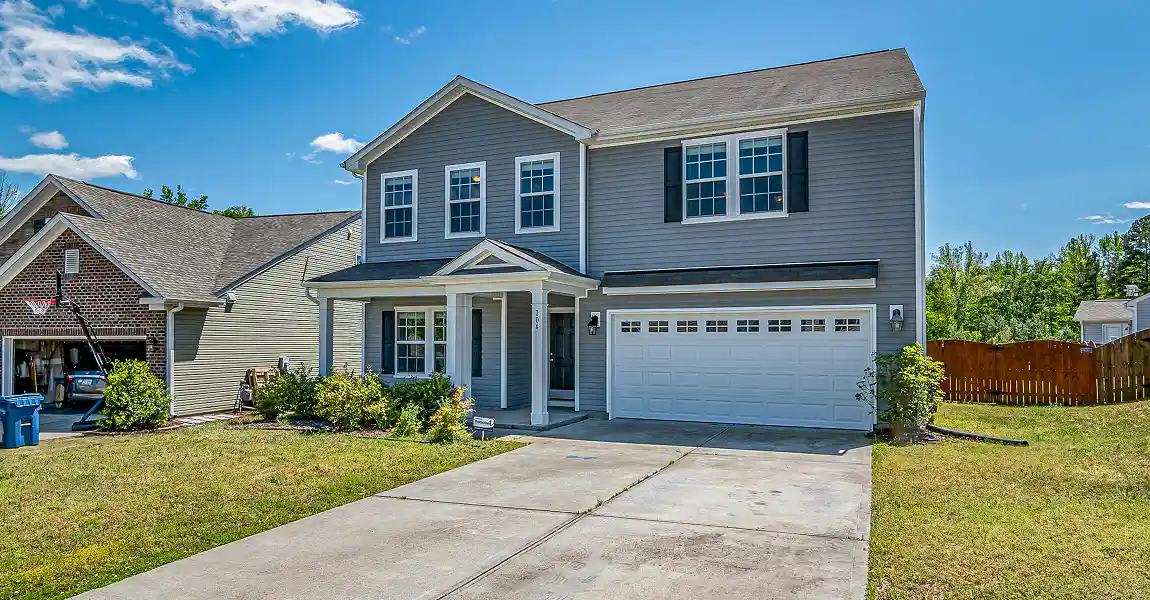If you’re planning to replace or repair your roof in North Carolina, it’s essential to understand the state’s roofing codes and regulations. Whether you’re upgrading your home, dealing with storm damage, or building new construction, knowing what’s required can help you avoid fines, delays, or costly mistakes.
North Carolina enforces strict roofing regulations to ensure homes can withstand the state’s hurricanes, heavy rains, and extreme weather conditions. These codes affect everything from material requirements to ventilation standards and permitting.
In this guide, we’ll break down North Carolina roofing regulations, so you know what to expect before starting your roofing project.
For professional guidance, visit roofing regulations in NC and let the experts at Citadel Contracting ensure your roof meets state standards.
Do You Need a Permit for Roofing in North Carolina?
Many homeowners wonder if they need a permit for roof work, and the answer depends on the scope of the project.
When a Permit is Required:
- New roof installations on homes and businesses.
- Full roof replacements, where all old materials are removed and replaced.
- Structural repairs involving roof decking, rafters, or trusses.
- Major modifications, such as adding skylights or changing the roof’s pitch.
When a Permit May Not Be Needed:
- Minor repairs, such as replacing a few missing shingles.
- Small patchwork jobs that don’t affect the roof’s structure.
How to Obtain a Roofing Permit
Permits are issued by local building departments, so requirements vary by city or county. Before starting your project, check with your municipal or county office to ensure you have the correct documentation.
North Carolina Insight:
In areas like Charlotte and Raleigh, a roofing permit can cost between $50 and $250, depending on the project’s size. Failing to get a permit when required could result in fines or forced removal of unauthorized work.
North Carolina Roofing Material Requirements
North Carolina’s climate and severe weather patterns influence the types of roofing materials allowed under state code. The goal is to ensure that roofs can withstand strong winds, heavy rains, and even hurricanes.
Approved Roofing Materials in North Carolina:
- Asphalt shingles (most common, with wind resistance ratings of up to 130 mph).
- Metal roofing (durable and highly resistant to storms and fire).
- Clay or concrete tiles (often used in coastal areas for wind resistance).
- Slate roofing (heavy but long-lasting).
- Wood shakes (allowed but must meet fire-resistant standards).
Wind and Weather Considerations
- Hurricane-prone areas, like Wilmington and the Outer Banks, require wind-resistant shingles rated for up to 150 mph winds.
- Roofing underlayment must meet moisture barrier standards to prevent leaks and rot.
- Certain materials may be restricted in fire-prone areas, requiring special coatings or treatments.
North Carolina Insight:
Homeowners in coastal regions like Morehead City must install hurricane-rated roofing that meets the state’s wind resistance codes to reduce storm damage risks.
Ventilation and Insulation Requirements
Proper roof ventilation and insulation are essential for energy efficiency and long-term roof health. North Carolina has strict regulations to prevent moisture buildup, mold growth, and excessive heat retention.
Ventilation Requirements:
- Homes must have at least 1 square foot of ventilation per 150 square feet of attic space.
- Soffit and ridge vents are recommended for continuous airflow.
- Powered attic fans may be required in some cases to regulate temperature and humidity.
Insulation Standards:
- The state follows R-value insulation requirements, meaning the insulation must meet a minimum R-30 rating for attics.
- Homes in colder regions, such as the Blue Ridge Mountains, may require additional insulation to meet state codes.
North Carolina Insight:
In humid areas like Fayetteville and Greensboro, poor attic ventilation can lead to roof deck rot and shingle damage. Installing proper vents can extend the life of your roof and reduce cooling costs.
Roofing Code Requirements for Storm Protection
Since North Carolina is vulnerable to hurricanes and tropical storms, the state has specific roofing codes designed to minimize wind and water damage.
Hurricane and Wind Code Requirements:
- Shingles must be installed using six nails per shingle instead of the standard four for added wind resistance.
- Starter strip shingles are required along eaves and rakes to prevent uplift.
- Roof decking must be at least 7/16-inch plywood for structural strength.
- Hurricane straps or clips may be required to secure the roof to the home’s frame.
North Carolina Insight:
After Hurricane Florence in 2018, the state updated many of its roofing regulations to require stronger wind-resistant materials. Homeowners in storm-prone areas should ensure their roofs meet these upgraded standards.
Inspection Requirements After Roofing Work
After a roof replacement or major repair, an inspection may be required before the project is considered complete.
When is a Roofing Inspection Required?
- For new roof installations or full roof replacements.
- If the roof structure has been altered.
- If local building codes require a final approval before the warranty applies.
How to Pass a Roofing Inspection:
- Make sure all materials used meet North Carolina building codes.
- Ensure proper flashing installation around chimneys, vents, and skylights.
- Verify that ventilation and insulation meet the required standards.
- Confirm that shingles and fasteners are rated for your region’s wind conditions.
North Carolina Insight:
In Raleigh and Durham, roofing inspections are often required within 48 hours of job completion, and failing an inspection could mean additional costs to fix code violations.
Why Understanding Roofing Regulations Matters
Complying with North Carolina roofing regulations is essential for safety, durability, and avoiding costly fines. Whether you’re installing a new roof, repairing storm damage, or upgrading your attic ventilation, following state and local codes ensures your roof is built to last.
Key Takeaways:
- Roofing permits are required for new roofs and structural repairs.
- Materials must meet wind and weather resistance standards, especially in hurricane-prone areas.
- Ventilation and insulation codes prevent moisture buildup and improve energy efficiency.
- Wind protection measures—such as extra nail placement and hurricane straps—are required in storm-prone regions.
- Final inspections ensure that all work complies with local codes and standards.
If you’re unsure whether your roofing project meets North Carolina’s requirements, contact Citadel Contracting. Our team specializes in roofing regulations in NC and ensures your home is compliant with all local codes.










